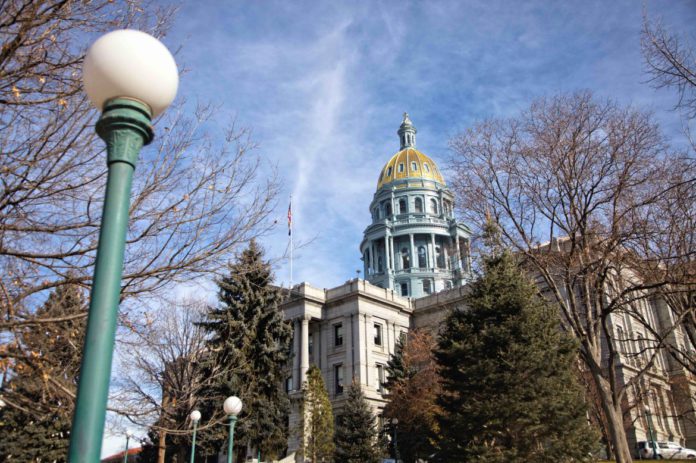
Marijuana is big business in Colorado. But a bill in the state Senate seeks to make the industry more accessible to people of color.
According to bill sponsors, SB21-111 is being proposed to address issues of equity in the marijuana industry by creating a program within the Office of Economic Development & International Trade to provide grants, loans and technical help to marijuana entrepreneurs who qualify as a social equity licensee.
According to state statute, a social equity licensee must meet several criteria including being a Colorado resident, and must not have been a beneficial owner of a license subject to disciplinary or legal action. Other criteria includes meeting at least one of the following requirements: Applicants must have resided for more than 15 years, between 1980-2010, in an “opportunity zone or disproportionately impacted area; that the applicant and/or their parent, legal guardian, sibling, spouse, child or minor was convicted, subject of civil asset forfeiture from a marijuana offense prior to decriminalization; or the applicant’s household income the year before applying wasn’t above an amount determined by the state licensing authority.
Tom Downey, a regulatory attorney and shareholder at Ireland Stapleton Pyror & Pascoe, said that it was important to recognize that an applicant must match one of those three categories. “This supports the whole point of this — solving the problem,” he said. “It is to address historic wrongs,” Downey said. “And so, how specific is that?”
But where do these problems of equity stem from? According to supporters of the bill and industry experts, some of these challenges have existed since the start.
Downey said barriers to entry have existed since the beginning of the industry, and the first and foremost was capital access. Ironically, having a criminal history with marijuana-related crimes prior to decriminalization could also bar people from entry.
One of the bill’s sponsors in the House, Rep. David Ortiz, said part of the problem of equity in the marijuana industry stems from who was prosecuted for marijuana crimes, “because we know that communities of color were over-policed and over-prosecuted,” he said. He added that he was concerned that with a booming and thriving cannabis economy, “we know who the owners are, and we know what percentage it is.”
According to the June 2020 “Cannabis Business and Employment Opportunity Study” from the City and County of Denver, over 74% of licensed cannabis business owners were white, as were 68% of the industry’s employees. “That’s the history of it, that’s the wrong that’s trying to be addressed,” Ortiz said. States and local jurisdictions have taken different steps to address the equity issue, such as requirements of large local ownership percentages in marijuana companies in certain locations.
Access to capital has long been a problem for cannabis businesses. Jenifer Waller, the president of the Colorado Bankers Association, said that until marijuana is federally decriminalized, banks will always have difficulty dealing with marijuana businesses. The CBA is monitoring the bill to see how it will affect the small number of banks dealing with the marijuana industry.
The bill looks to address access to funding through creation of a program in the OEDIT supporting marijuana industry entrepreneurs, primarily assisting social equity licensees, according to the Colorado General Assembly website. Mainly, the program will consist of loans for social equity licensees for seed capital and ongoing business expenses; grants to licensees for supporting innovation and job creations and technical assistance for marijuana business owners, prioritizing the social equity licensees.
“What is different about this bill is that it puts money behind it,” Downey said. “This is crossing a Rubicon.” The current process is disproportionately affecting people of color and those without means, according to Downey.
Initially, according to the current bill text, the program will be funded by a $4 million transfer from the marijuana tax cash fund to the “newly created marijuana entrepreneur fund” which is continuously appropriated to OEDIT for the program. In addition, beginning in FY 2022-23, the General Assembly could appropriate additional money from the tax fund to the entrepreneur fund, according to the bill.

